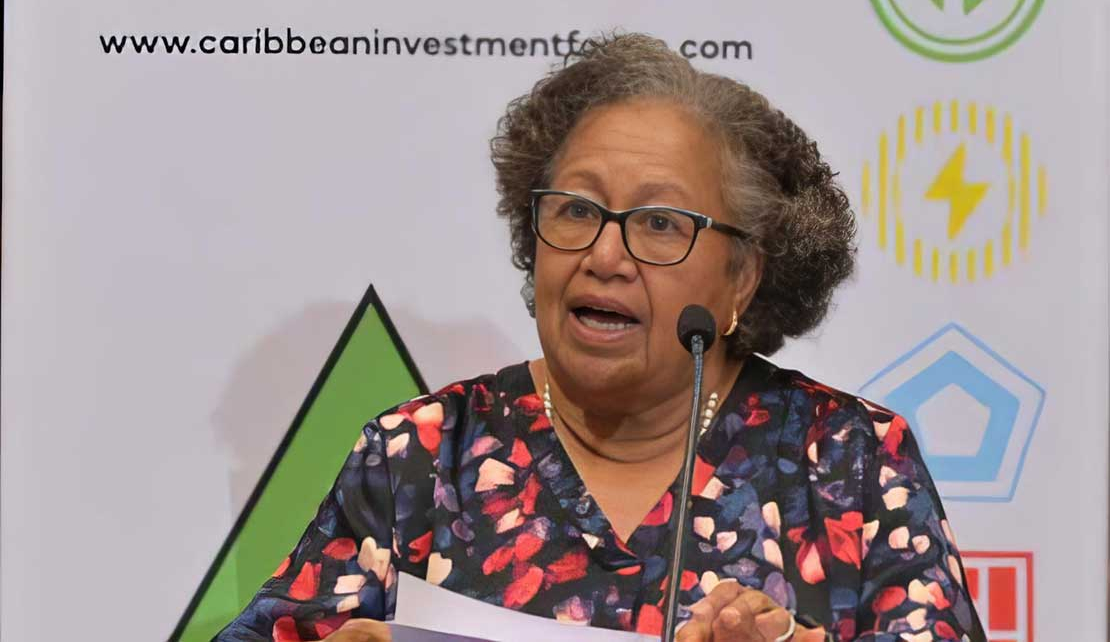CARICOM Unveils $1.2 Billion Vision for Caribbean Resilience and Growth

GEORGETOWN, Guyana, July 11, 2024 - The Caribbean Community (CARICOM) is poised for a transformative leap into a future marked by resilience, sustainability, and innovation, according to a rousing address delivered by Secretary General Dr. Carla Barnett at the opening of the Regional Investment Forum.
In a speech that electrified the packed conference hall, Dr. Barnett unveiled an ambitious vision for the region, targeting key sectors vital to the Caribbean's economic fortitude and long-term prosperity.
"We're not just adapting to change; we're driving it," Dr. Barnett declared, her words echoing through the hushed audience. "From revolutionizing our agricultural sector to embracing green energy and digital transformation, we're charting a course for a Caribbean that doesn't just survive, but thrives."
The centerpiece of CARICOM's strategy is a bold initiative to bolster food security. Dr. Barnett announced the introduction of a regional agri-insurance product, a move set to de-risk the agricultural sector and empower farmers to innovate without fear. This, coupled with dedicated capital funds for transportation and logistics, promises to reshape the region's agricultural landscape.
Perhaps most striking was the revelation of $1.2 billion in potential investments identified across six key agri-food value chains. This massive influx of capital, supported by the CARICOM Private Sector Organization, signals a new era of public-private partnership in the region's quest for food self-sufficiency.
Energy independence also featured prominently in Dr. Barnett's vision. "We're harnessing the power of our natural resources - sun, wind, earth, and sea - to break free from the shackles of imported fuel," she stated, outlining CARICOM's commitment to renewable energy sources.
The Secretary General pointed out that CARICOM's Vision 25 by 2025 Initiative, championed by Guyana's President Dr. Irfaan Ali, highlights the importance of private investment in reducing the region's food import bill through increased local production and enhanced intra-regional trade. This initiative has already spurred noticeable advances in policy development, investment attraction, and agricultural sector de-risking.
The Secretary General didn't shy away from addressing recent challenges, referencing the devastation wrought by Hurricane Beryl. She used this as a springboard to emphasize the critical importance of digital transformation, particularly for the region's MSMEs. "In the face of disaster, resilience is our greatest asset," Dr. Barnett asserted. "And in the digital age, resilience means connectivity, innovation, and adaptability."
The speech comes at a pivotal moment for the Caribbean, as the region grapples with the dual challenges of economic recovery and climate resilience. Dr. Barnett's words seemed to resonate deeply with attendees, many of whom represent potential investors and key stakeholders in the region's future.
As the forum continues over the coming days, all eyes will be on how these ambitious plans translate into concrete actions and investments. One thing is clear: CARICOM is not waiting for the future to happen – it's actively shaping it.
With its blueprint for agricultural revolution, energy independence, and digital empowerment, the Caribbean Community is sending a powerful message to the world: The Caribbean is open for business, ready for innovation, and prepared to lead in the face of global challenges.
-30-
